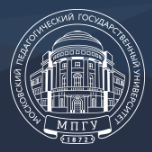Introduction
Moscow State Pedagogical University is an important educational center for training teachers in Russia. It is also the world's first teacher-training university and has always been at the top of the Russian teacher-training university rankings.
Overview
Student size: As of January 2024, the school has 26,180 students from 75 regions of Russia and 1,433 foreign students from 45 countries.
Faculty: There are 1,680 teachers in service, including 31 professors, 839 science candidates, and 11 famous academicians of the Academy of Sciences.
History and establishment time
The school was founded on November 1, 1872. Its predecessor was the Moscow Higher Women's College. After several name changes and changes, it was finally named Moscow State Pedagogical University in 1990 and merged with Sholokhov Moscow Normal University in 2015.
School strength
Teaching achievements: 150 Over the years, the school has trained a large number of outstanding educational talents for Russia and the world, and trains more than 1,500 teachers for Russia and the world every year. Among its alumni, there are many domestic and foreign education experts, scholars, Olympic champions, famous Russian artists, government officials and corporate executives.
Scientific research strength: As one of the 50 most important scientific research centers in the former Soviet Union, the school has carried out in-depth scientific research in many fields, achieved a series of important results, and made important contributions to the development of educational science. For example, colleagues in the Theoretical Physics Department, led by Professor Eduard Vladimirovich Shpolskii, discovered a method to repair different molecular structures at high temperatures.
International Cooperation: The school actively carries out international cooperation and exchanges, and has established cooperative relations with universities in many countries, such as Nanjing University, Ningxia University, Beijing Normal University and many other universities in China. It has also implemented joint education projects with some universities, promoting the sharing of educational resources and academic exchanges.
Institutional Nature
Public University.
Educational Philosophy
Focus on cultivating students' solid professional knowledge and educational and teaching skills, emphasizing the combination of theory and practice, and is committed to cultivating high-quality and innovative education professionals for Russia and the world to meet the needs of different educational fields and promote the development of education.
Key Laboratories and Disciplines
Key Laboratories: The school has a number of advanced laboratories and research centers, which provide strong support for teaching and scientific research, but the specific key laboratory information is not yet clear.
Key disciplines: covering multiple disciplines such as education, psychology, literature, history, physics, chemistry, biology, geography, sociology, law, and art. Among them, education, psychology, literature, and other disciplines have a high academic status and influence in Russia and even internationally.
Faculty
The school has 14 colleges, 2 departments, 12 scientific education centers, and 59 scientific groups, including the Department of Educational Psychology, the Department of Mathematics, the Department of Physics, the Department of Chemistry, the Department of Biochemistry, the Department of Geography, the Department of History, the Department of Literature, the Department of Foreign Languages, the Department of Social Economics and Law, the School of Sports, Culture, Sports, and Health, and the School of Arts.
Ranking
Ranked 1201+ in the 2021 and 2022 QS World University Rankings.
It ranks 1201-1400 in the 2024 QS World University Rankings released in June 2023.
Expenses
Registration fee: about US$50.
Accommodation fee: US$2,000/school year.
Medical insurance: US$200/year.
Campus
Teaching facilities: The school is located near the Frunze Metro Station in the center of Moscow. The new teaching building is located on Vernaz Street. It has 12 teaching buildings. Its library has a total collection of 1.8 million books, of which 40,000 are precious sample books. The school's electronic platform entrance is open, and books can be booked online remotely. It can also obtain a variety of major electronic scientific newspapers and documents.
Living facilities: There are 7 dormitory buildings on campus, which are very close to the campus. In addition, there are canteens, stadiums and other living facilities to meet the daily needs of students.
Cultural facilities: The school is one of Russia's cultural heritage. Its main building is the location for more than 100 movies such as "Easy Life", "We Come from the Jazz Band", "Carnival", "The Great Transformation", and "Doctor Zhivago".
-

Peter the Great St.Petersburg Polytechnic University
-
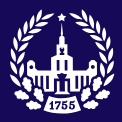
Moscow State University M. V. Lomonosov
-
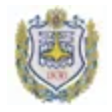
Bauman Moscow State Technical University
-
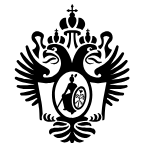
St. Petersburg State University
-
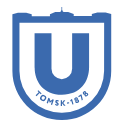
Tomsk State University
-
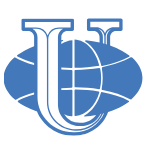
Peoples' Friendship University of Russia
-

Don State Technical University
-
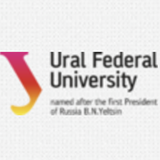
Ural Federal University
-

Moscow Institute of Physics and Technology
-
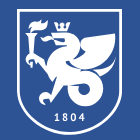
Kazan Federal University
-

Mesoamerican University
-

Istmo University
-

Mariano Galvez University of Guatemala
-

Regional University of Guatemala
-

Galileo University
-

Francisco Marroquín University
-

Rafael Landívar University
-

University of the Valley of Guatemala
-

University of San Carlos of Guatemala
-

Technological Institute of Tlaxcala Plateau
-

Golfo University
-

Technological University of South Sonora
-

Technological University of Huejotzingo
-

Tizimín Institute of Technology
-

Chilpancingo Institute of Technology

